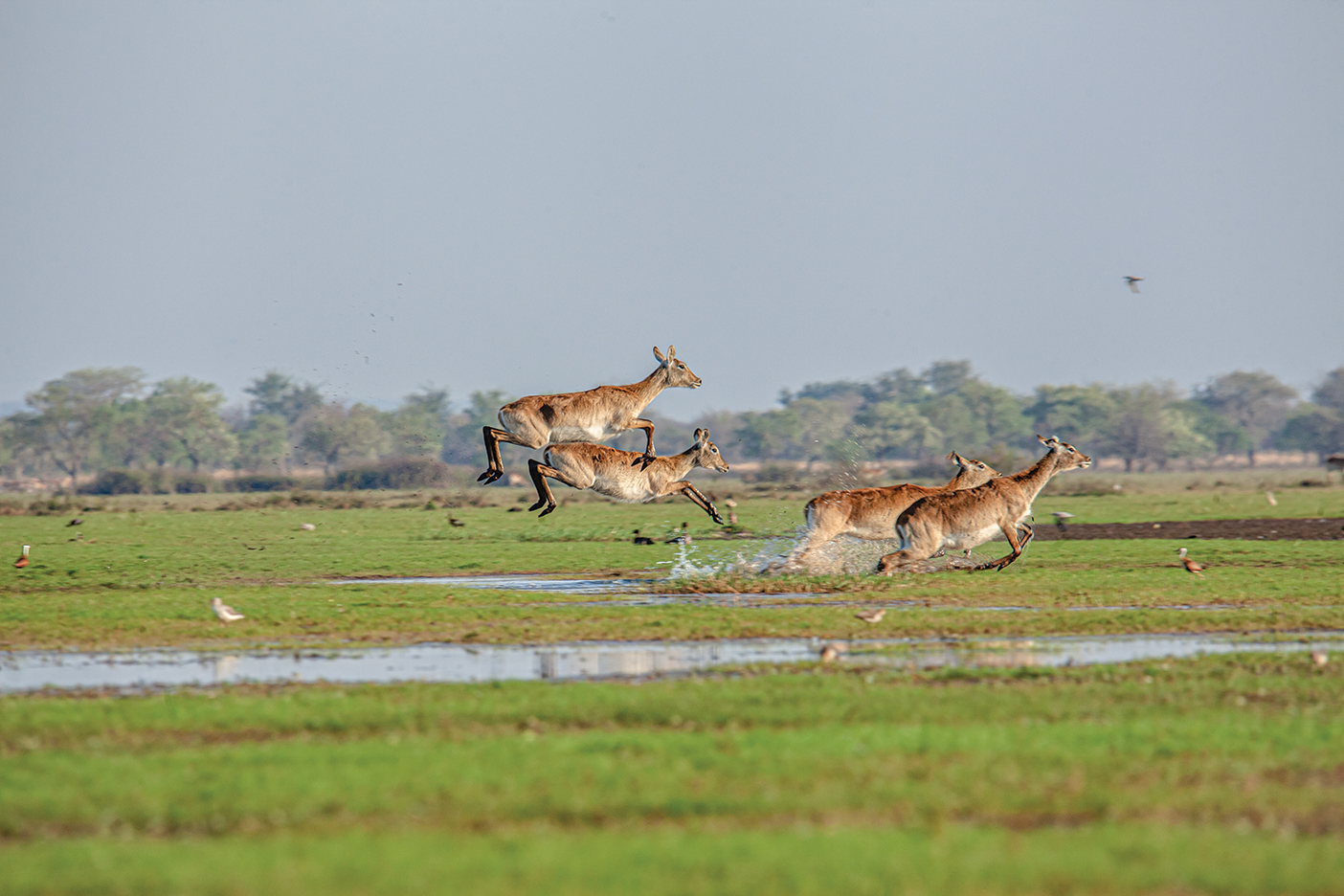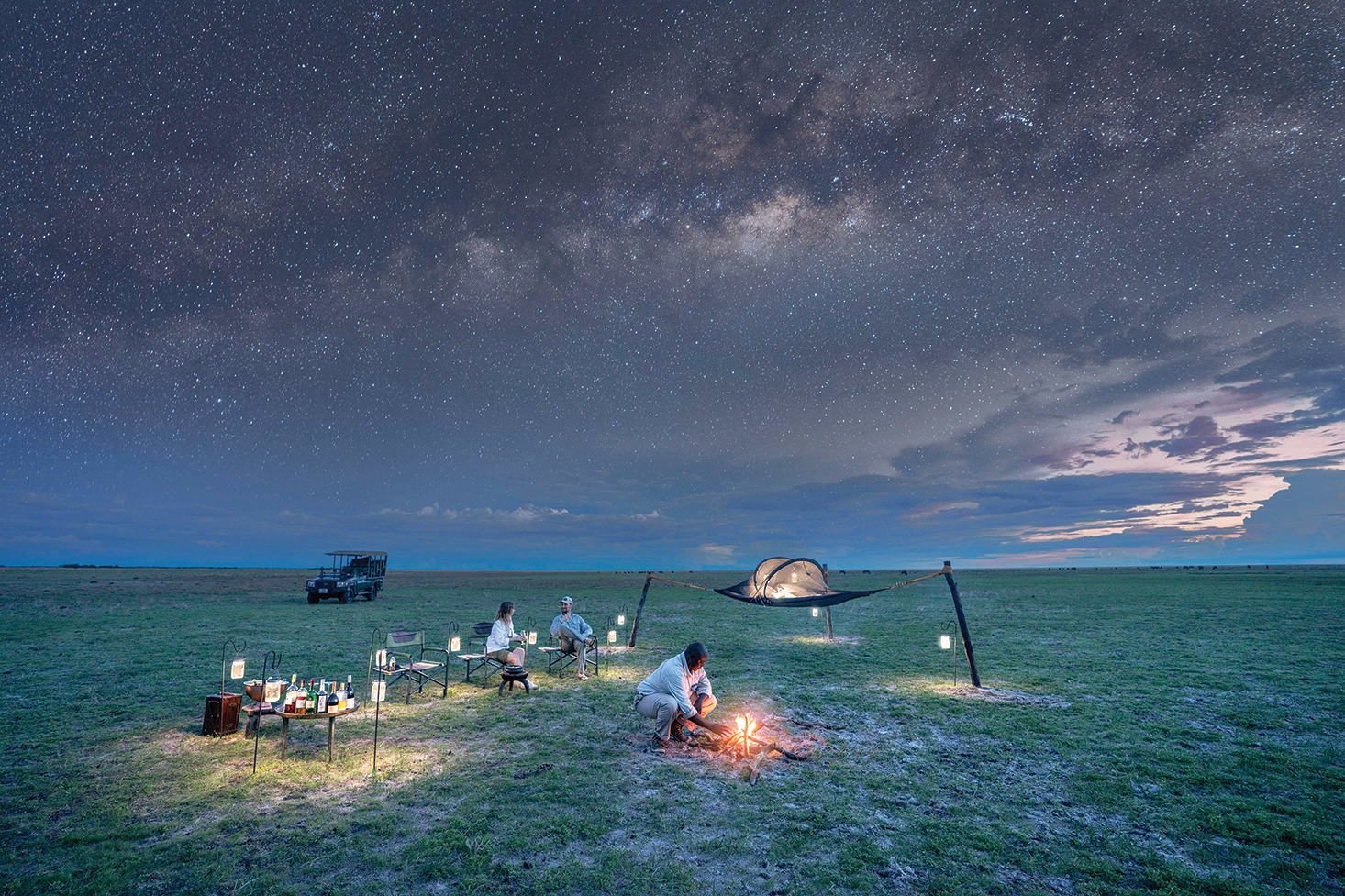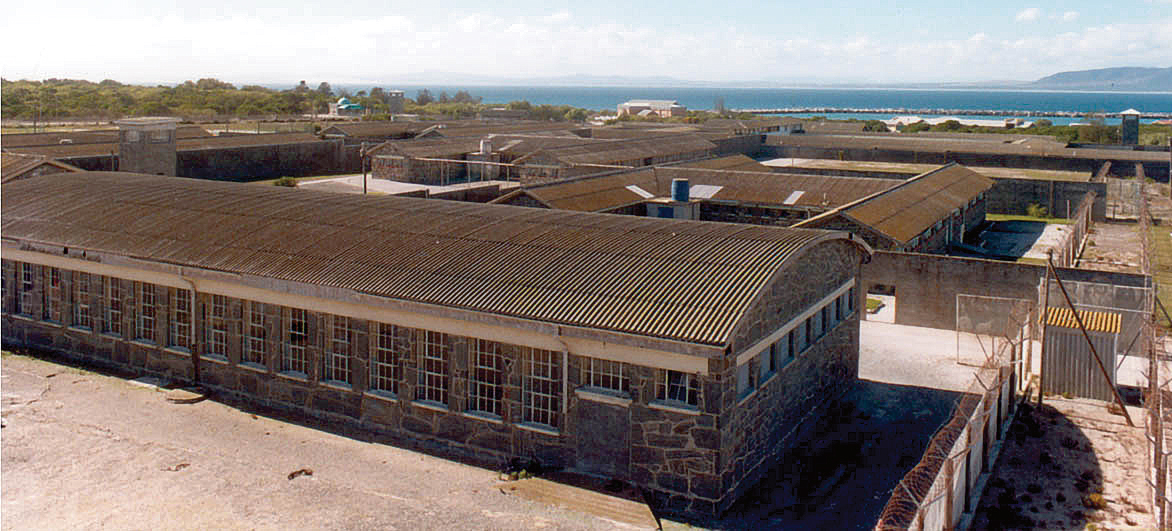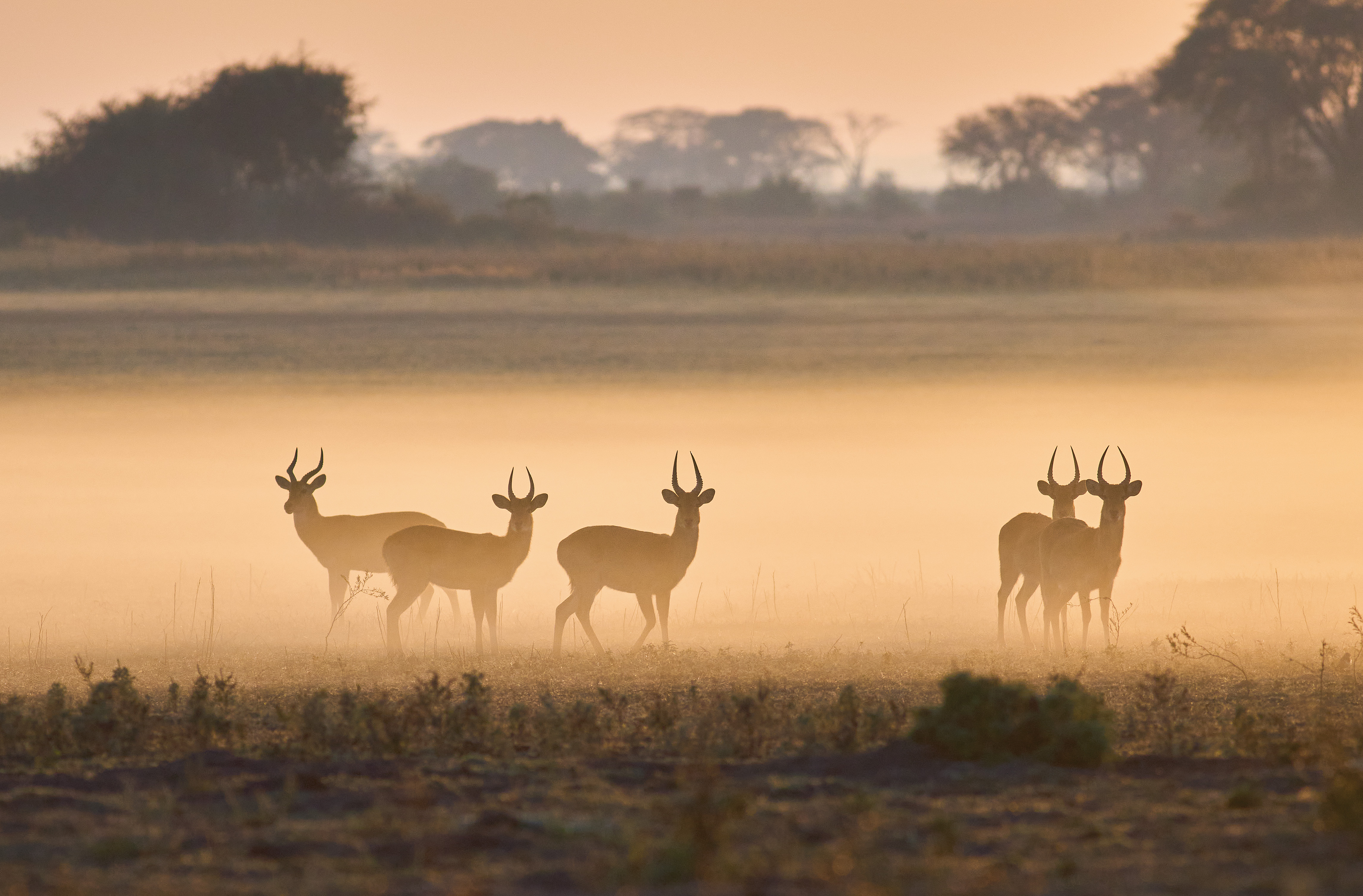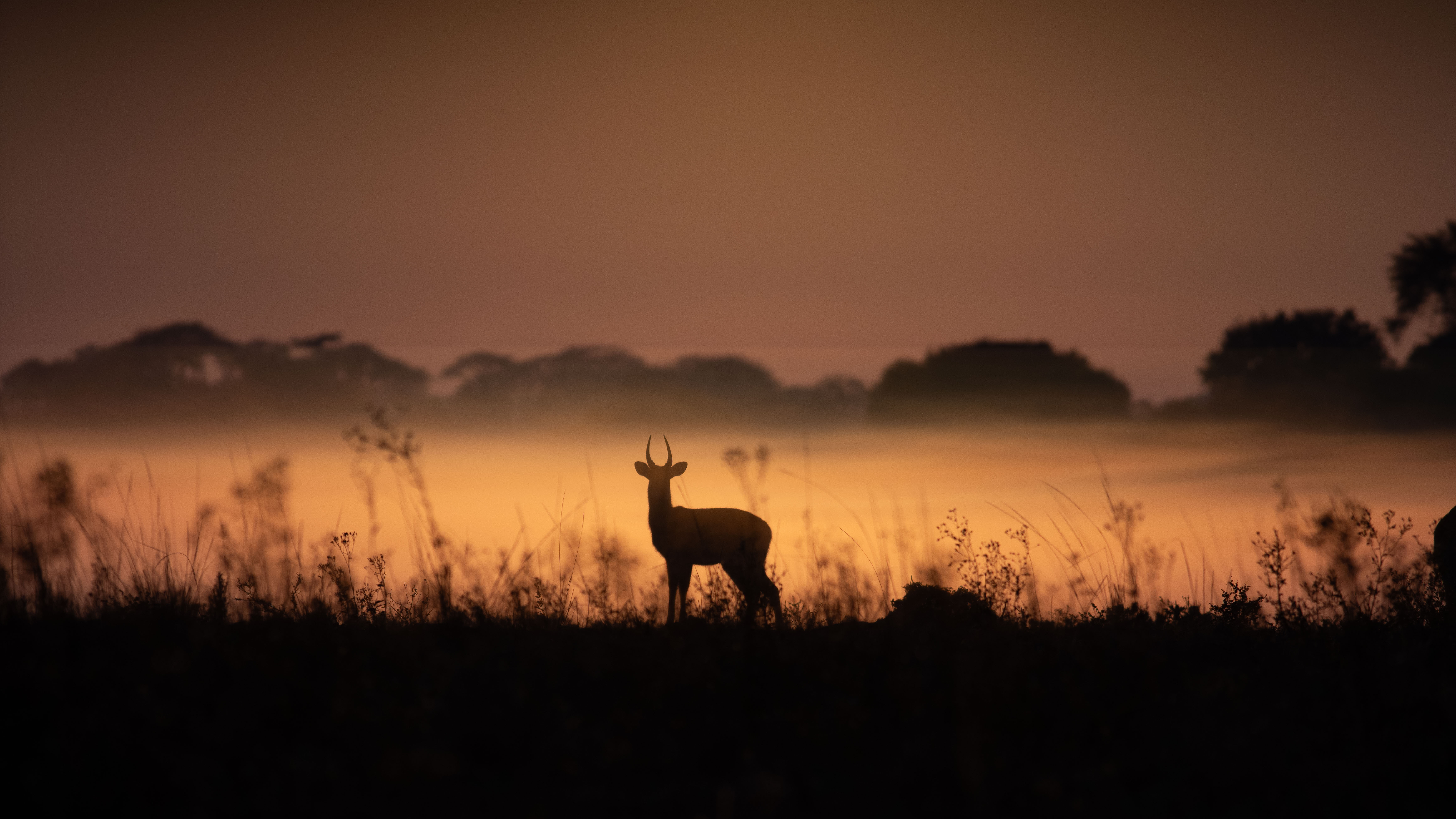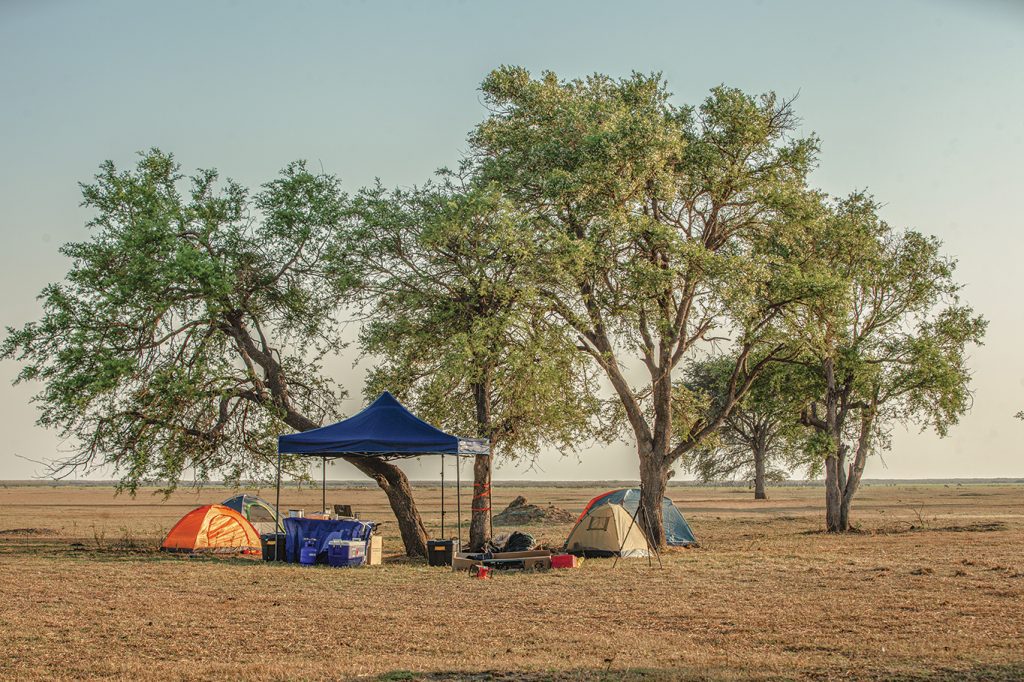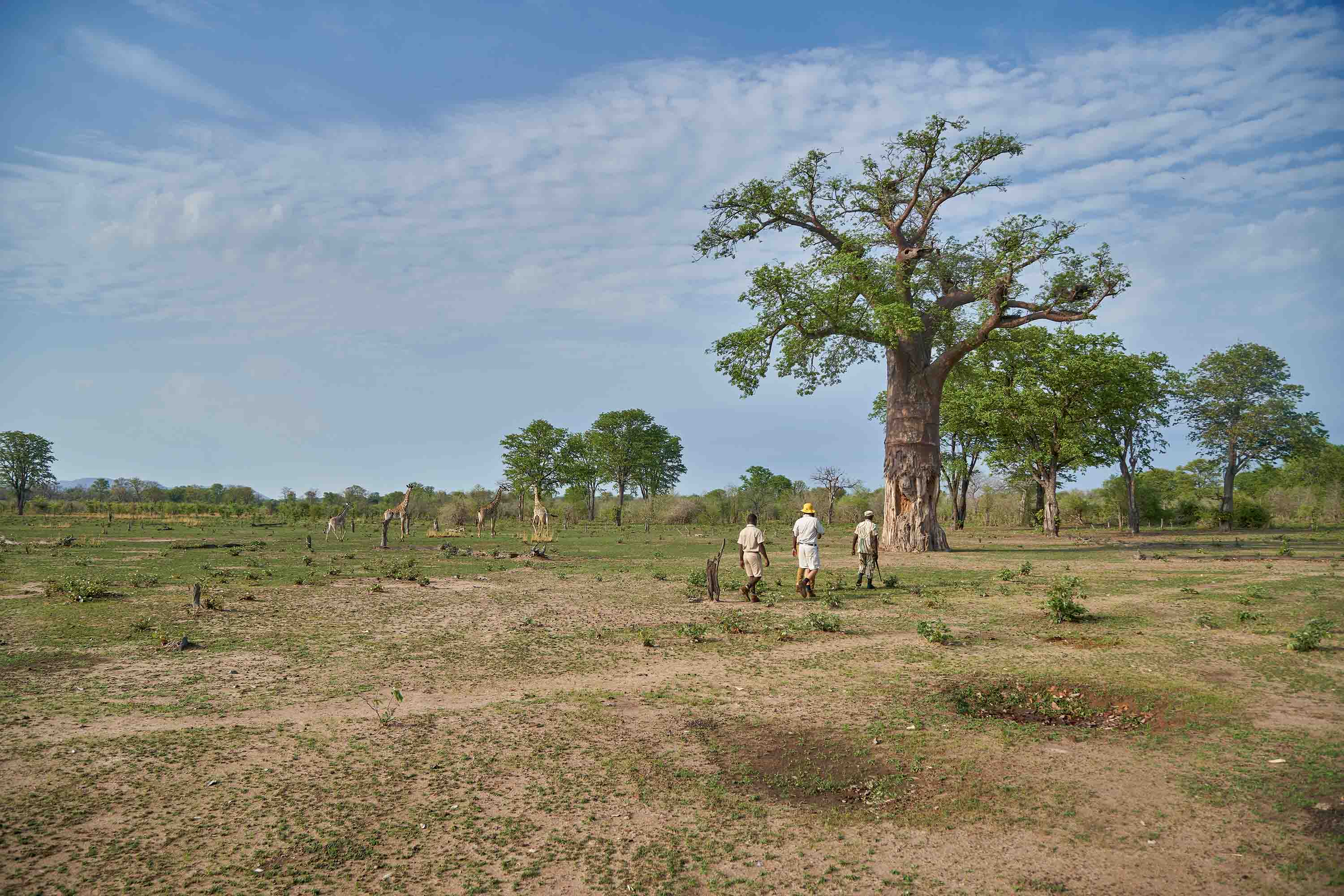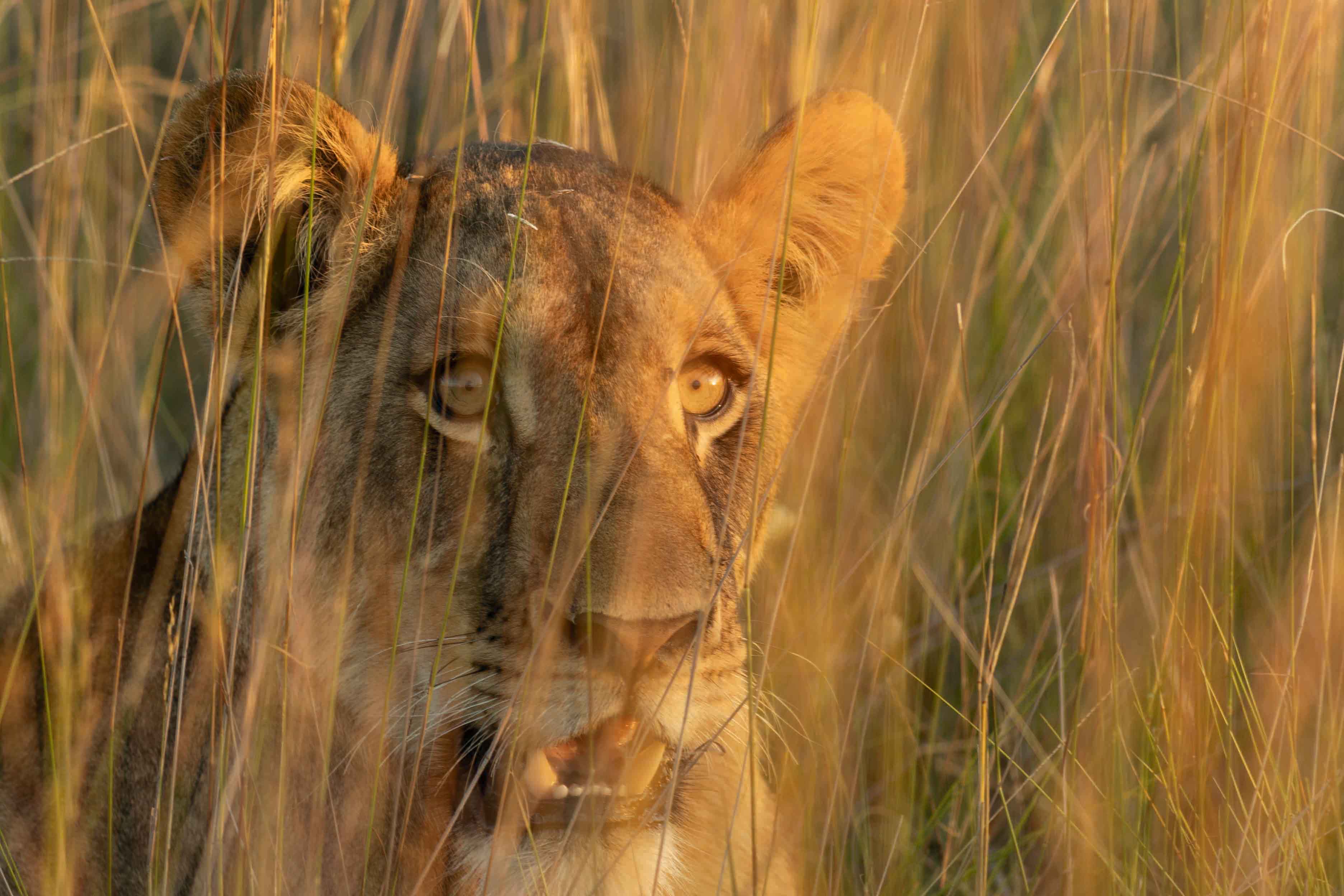It’s trudging knee-deep in lagoon sludge to get as close as you can to Kafue Lechwe. It’s getting sunburned and returning to Lusaka with a peeling nose. It’s all the sausage stuffing that goes into finding the perfect cover photo for the magazine you’re reading right now and then some.

Gathered here are notes salvaged from my notebook after a bond-forging trip to Lochinvar National Park near Monze, Southern Province. The park is home to the regal Kafue lechwe and over 420 species of birds.
Tuesday, 3 October 2023
Morning, 10:10 AM
It’s taken us over three hours to arrive. Our team took two cars: Walid, media mogul and expert camper, drove with Alex, the talented young man who would be recording video, while I rode with Lizu, ace photographer and professional outdoorsman. I visited Lochinvar in 2017. Over time, the community’s encroachment and some isolated poaching have evicted some of the wildlife. You’ll see more cattle herds grazing than other animals during the dry season.
“Drive through any other national park for this long, and you’ll at least see some impala,” Lizu said. But we’ve both learned to manage our expectations. On the other hand, Walid seemed to be glowing with eagerness even at 4:00 AM when we met to start our journey.
10:30 AM
You can smell the dung in the air. Common bulbul calls dominate the quietude. Baobab trees dotted everywhere. Dust, low dry grass and scorched earth. I feel at home. Amos Mafumba, a Wildlife Police Officer with the Department of National Parks and Wildlife, is our guide. He jumps in with Walid, and they lead the way to where we’ll set up camp.

Afternoon, 1:30 PM-ish
We’ve colonised a patch of nowhere land close to Chunga Lagoon. It’s all open plain and the occasional tree up to the wetland in the distance. If you squint, you can see Kafue Lechwe—endemic to this region—drinking water alongside white cranes.
Setting up the tents is a challenging task. The wind is working overtime to halt our efforts—strong gusts beating our flimsy backyard tents like flags at half-mast.
4:25 PM
Lizu walks off and trails a lone Kafue lechwe. He’s in one of his trances. There’s no stopping him when he’s in pursuit of a particular photo. He once had leeches on him after wading through the swamp to photograph the rare shoebill stork during our Bangweulu assignment.
“You see? The animals are so much free to move around because there’s no poaching in this area,” Amos points out.
Evening, 6:42 PM
We’re in Nswilile Fishing Village looking for a fisherman to take us onto the lagoon tomorrow. Some of these people come from Luapula and Western Province, seeking a better life. It turns out we went to the wrong house. Our man has two wives and is at his second family’s homestead. When we meet him, he’s with a small posse. Kids crowd the car and steal glimpses of us through the windows. Walid’s 4×4 has been drawing attention. The villagers ask for an exorbitant amount, but Walid isn’t having it. He tells our man to come by our camp the following afternoon. Alone.


Wednesday, 4 October 2023
Morning, 05:08 AM
We’ve been up since the crack of dawn when the sun begins to stir, and its orange light tapers upwards. I had slept alright, considering that my sleeping bag and yoga mat were not enough cushioning for my soft, suburban body.
05:40 AM
We’re on a mission to catch a photo of the Gwisho Hot Springs’ morning glory. Walid was up after Amos but seemed to be the only one fully awake.
05:45 AM
“How big are the trash bags you carried?” Alex asks Walid. “Big,” Walid replies.
“I want to cover myself with one and use a shrub to get close [to the lechwe]”, Alex says. Lizu chuckles; he’s awake. Walid is amused, too. You have to applaud Alex’s misplaced creativity.

06:07 AM
The sweet smell of grass and leaves. Steam rising from the first spring we find at Gwisho. It’s a sickly pastel painting with various shades. I imagine this is what the primordial soup looked like. Not surprising. There have been numerous archaeological finds in the area. This is a sign that this location has been a centre of life for centuries.
Echoes of baboons howling and barking are a reminder that I’m not in Lusaka.
07:35 AM
“I thought it was shaped like a drum,” Walid says. I feel the need to chat with him about the philosophy of managing expectations in the middle of nowhere. We’re at Drum Rock, an ancient site that the Tonga people would visit to ask their ancestors for protection as they herded their cattle. “They had a belief to say if they don’t drum the rocks, they would get lost and find themselves returning to the same spot,” Amos tells me.
Midday, 12:05 PM
I am beginning to think that we should have drummed the rocks. We’ve been going around in circles for what seems like an eternity. We’re lost in Lochinvar. Even Amos appears to need help figuring out where to go.
1:10 PM
The man Amos and Walid were negotiating with for the boat yesterday was actually the village headman. He comes by with two boys, Clement and Moses. The two 18-year-olds will paddle us through the lagoon and get us as close to the lechwe as possible. After lunch, I hear them playing a rap song they made using a phone. The tinny track is a freestyle about life as a superstar in a fishing village, about the tribulations of groupies and bottles of liquor.

Afternoon, 4:21 PM
Nearly got stuck, but Clement, Moses and Amos pushed the banana boat through. Walid got a paddle and helped as well—so many birds.
Black-winged stilts; crowned cranes; African pygmy-geese; cormorants, both greater and smaller; yellow-billed stork….Long-legged. Wading through the muck. Eating fish and insects…

Evening, 5:16 PM
A lechwe with a broken horn is looking at us. Suspiciously.
We’ve reached a patch of sand and can’t go any further. Lizu and Alex get out to wade through the gunk and help push the boat. They’re both better men than I am. Mosquitoes and other insects are feasting on us.
P.S. Remember to carry insect repellent tomorrow.
Night, 7:54 PM
Walid is cooking us his Sierra Leonean dish, granat soup, a mix of onions, tomato, peanut butter and chicken. It’s a little sweet and spicy. I like it. He seems happy. He’s been high-fiving Lizu because he’s glad they got some great contenders for the cover photo.
“Today was great. The trip on the boat saved us,” he says.

Thursday, 5 October 2023
Morning, 06:30 AM
Alex, Walid and Amos drive to the lagoon to take photos of the fishermen as they go out for the day. Lizu is still asleep in the tent. This is an excellent opportunity to relieve myself. I’ll spare you the details, but I feel at one with nature when I’m done. Who needs the technological complexities of flushing toilets?

Evening, 5:00 PM
Everyone else has gotten out to push us past another barrier. I stayed inside the boat to hold the cameras, contributing to the team effort. This is the stuff our readers don’t see. The long waits for a photo. The lack of cooperation from the animals and how Lizu is using his creativity to herd lechwe for a decent shot.

Evening, 6:10 PM
In all the fuss to capture the photo, I had nearly forgotten just to be present, to enjoy the sounds of the birds and the smells of the open marsh. Lochinvar wasn’t teeming with the big five, but it has charm. The sun is setting. It’s a flat, fiery disc of sacramental bread descending into the horizon. We all partake of it and give thanks in silence.
“It’s kinda peaceful,” Walid says. Kinda peaceful indeed.
Images by: Kalichi Pictures and Walid Nassar
